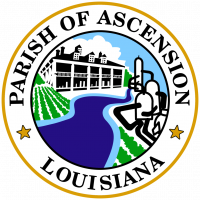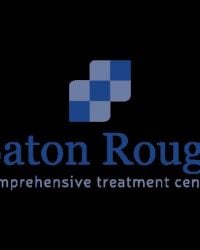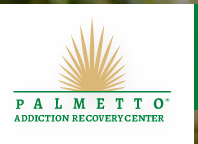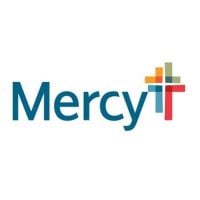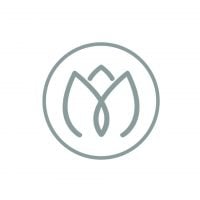
Magnolia Family Services
Drug Rehab Center in Thibodaux, Louisiana
- Mental Health
Magnolia Family Services in Thibodaux, Louisiana offers addiction treatment services, including residential and outpatient programs, that incorporate evidence-based therapies and holistic approaches to help individuals with mental health and substance abuse issues on their path to recovery.
About Magnolia Family Services in Louisiana
Magnolia Family Services in Thibodaux, Louisiana is an addiction treatment facility that offers comprehensive residential and outpatient services. Licensed and professionally staffed, they provide a range of assessments, personalized intervention, and evidence-based treatments for people suffering from mental health, substance abuse, alcoholism, and drug addiction. Treatment programs are tailored to meet the needs of each individual, incorporating evidence-based therapies such as cognitive behavioral therapy as well as holistic approaches like yoga and nutrition. The facility is accredited by CARF and SAMHSA, which demonstrates the commitment of the organization to providing high-quality services.
Magnolia Family Services’ array of treatments is designed to help clients work through their addiction and other mental health issues related to substance use. Through a combination of individual, group, and family therapies, they provide a safe and supportive environment for their patients to start on the path to recovery. They support their patients every step of the way, offering relapse prevention skills, recovery coaching, and aftercare services to increase their chances of long-term success. With a wide range of evidence-based treatments, the organization is equipped to help those suffering from addiction and substance abuse.
Genders
Ages
Modality
Additional
Accreditations
SAMHSA

CARF
The Commission on Accreditation of Rehabilitation Facilities (CARF) is a non-profit organization that specifically accredits rehab organizations. Founded in 1966, CARF's, mission is to help service providers like rehab facilities maintain high standards of care.
Conditions and Issues Treated
Levels of Care Offered
This center offers a variety of custom treatment tailored to individual recovery. Currently available are Outpatient, with additional therapies available as listed below.
Outpatient programs at Magnolia Family Services, the Thibodaux resident can live with their family while continuing with their job or studies. Treatment includes educating the patient on drug abuse, medications, and counseling sessions at the individual or group level. Outpatient treatment plans cover diagnosis, detoxification, management, and counseling. They are a popular option for those who have graduated from inpatient facilities.
Therapies & Programs
Individual therapy is a form of counseling where you meet with a trained professional one-on-one. Meeting with a therapist in this setting allows for a personal and trusting relationship to be built. This allows the patient to open up about sensitive or private issues they may not feel comfortable discussing in a group. Individual therapy helps identify the root causes of your addiction, which can help prevent relapse.
Couples therapy for drug addiction is a unique form of therapy that allows family members to work through the emotional issues of their loved one’s addiction together. Family members can support each other while learning how to cope with the addiction and encourage healthy changes. The two will work with a therapist to learn how the addiction affects themselves and the relationship.
Family therapy is often done alongside drug treatment to help addicts stay sober. The goal of family therapy for drug addiction is to create an environment where communication can happen without judgment, hostility, or blame. The therapist will sit with the family so they can learn how to communicate differently and provide new tools for dealing with emotions so that people don’t want to drink or do drugs. It’s important for families to focus on relapse prevention plans during treatment so that if the addict feels like they want to use again, they’ll know what steps they need to take together to prevent it from happening again in the future.
Group therapy sessions are another common addiction recovery service. These group sessions typically involve six to 12 addicts who meet regularly with a trained professional for support and guidance.
During these sessions, the group shares their experiences with one another and provides feedback that can help each member avoid relapse or overcome specific obstacles they are facing in their recovery process. With this type of support and guidance, addicts can feel like they are part of a community that understands their struggles and will help them get through the hard times.
Many people struggling with drug addiction have experienced some form of trauma in their lives. It is crucial that these individuals seek out professional help; otherwise, their drug abuse and addiction will likely continue.
Therapists and counselors at drug treatment centers employ several treatment programs to help people struggling with drug addiction, including trauma therapy. Trauma therapy helps people dealing with addiction by allowing them to confront the traumas of their past and move past them.
It is important to note that trauma therapy should not be confused with PTSD (post-traumatic stress disorder). Rather, it is used to treat the effects of trauma, which are often at the root of addiction.
Cognitive Behavioral Therapy (CBT) focuses on the underlying thoughts and behaviors that caused the problem of addiction in the first place and may cause a relapse. Negative feelings are common in drug abuse disorders, but they can lead to co-occurring disorders if not recognized. CBT involves strategies that help to change the behavior pattern by restructuring negative thoughts into positive ones. It helps to remove these feelings, and it provides long-term benefits. Also, CBT promotes self-awareness and self-control. It can be administered as a monotherapy or as part of combination therapy.
CBT can improve the patient’s mood, reduce drug cravings and boost success rates on treatment plans. Regular practice can help individuals handle negative attitudes, thoughts, and feelings without turning to drugs or alcohol. The core belief of Cognitive Behavioral Therapy (CBT) is that one’s moods, behaviors, and actions are all connected. Individuals can improve their quality of life using CBT. It helps addicts understand the patterns of thought and feelings that cause them to use drugs or alcohol and develop a healthy response.
Payment Options Accepted
For specific insurance or payment methods please contact us.
Additional Details
Specifics, location, and helpful extra information.
Thibodaux, Louisiana 70301 Phone Number(985) 449-4055 Meta DetailsUpdated November 25, 2023
Staff Verified
Magnolia Family Services Patient Reviews
There are no reviews yet. Be the first one to write one.
Thibodaux, Louisiana Addiction Information
Louisiana is one of the top ten states in the nation for opioid-related deaths. One in ten high school students admits to regularly using prescription opioids for non-medical purposes. More than 225,000 Louisiana residents admit to regular heavy drinking and around 6% of the Louisiana population abuses alcohol. Marijuana use in Louisiana is most common amongst teenagers between the ages of 12 and 17 years old.
Treatment in Nearby Cities
- Scott, LA (81.5 mi.)
- Lacassine, LA (128.5 mi.)
- New Orleans, LA (47.9 mi.)
- Thibodaux, LA (1.9 mi.)
- Kaplan, LA (87.9 mi.)
Centers near Magnolia Family Services

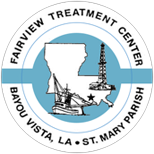
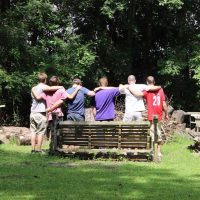
The facility name, logo and brand are the property and registered trademarks of Magnolia Family Services, and are being used for identification and informational purposes only. Use of these names, logos and brands shall not imply endorsement. RehabNow.org is not affiliated with or sponsored by Magnolia Family Services.




